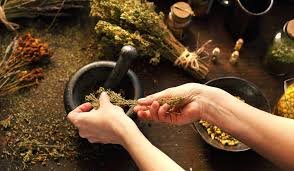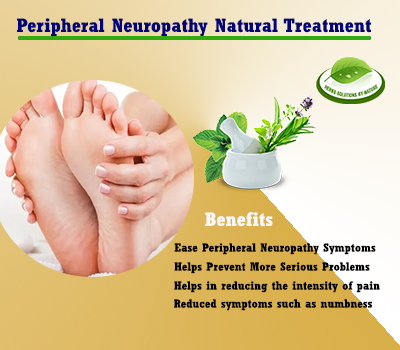A Beginner’s Guide to Herbal Remedies for Common Health Challenges
Herbal remedies provide gentle and natural support for common health challenges. As a beginner, you can start with simple herbs for digestion, sleep, and immunity.

Herbal medicine has been part of human health care for thousands of years. Across cultures, plants have provided safe and natural ways to support digestion, sleep, immunity, and even neurological conditions. Many people are now rediscovering herbs because they want treatments that feel more natural, cause fewer side effects, and work alongside lifestyle changes. If you are exploring herbal remedies for the first time, this guide will give you a clear introduction to how herbs can help with everyday health concerns.

We will look at three common areas where people often seek herbal support—digestion, sleep, and immunity—and then touch on how herbs can also provide support for neurological challenges such as tremors. By the end, you will have a practical starting point to use herbs with confidence.
Why Herbal Remedies Appeal to Beginners
For many, the first step into herbal medicine starts with a wish for gentler options than conventional drugs. Herbs often work with your body’s natural processes rather than against them. They can support balance, calm irritation, and restore strength. Beginners also appreciate that many herbs are available as teas, tinctures, or capsules, which makes them easy to add to your routine.
However, it’s important to remember that “natural” does not mean risk-free. Herbs can interact with medicines, and some may not suit everyone. Always check with your doctor if you have ongoing health conditions or take prescribed treatments.
Herbal Remedies for Digestion
Digestive discomfort is one of the most common reasons people look into herbal support. From bloating to constipation, herbs can offer gentle relief.
Peppermint
Peppermint has long been used to soothe stomach upset. It helps relax the muscles of the digestive tract, which reduces cramping and bloating. Peppermint tea is a simple and effective way to use this herb after meals.
Ginger
Ginger is known for easing nausea and supporting overall digestion. It stimulates saliva, bile, and gastric juices, which help break down food. Fresh ginger tea or adding grated ginger to meals can improve digestion naturally.
Chamomile
Chamomile is calming not just for the mind but also for the stomach. It can reduce indigestion, stomach spasms, and mild nausea. Drinking chamomile tea after dinner can improve both digestion and sleep.
Fennel
Fennel seeds are often chewed after meals in many cultures. They reduce gas, bloating, and discomfort. You can make a fennel infusion by steeping crushed seeds in hot water.
Practical tip: If you often suffer from digestive discomfort, try keeping peppermint and ginger tea bags in your kitchen. These herbs are simple, safe, and very effective for beginners.
Herbal Remedies for Sleep
Sleep problems affect millions of people. Whether you struggle to fall asleep or wake frequently during the night, herbs can play a supportive role.
Valerian Root
Valerian has been used for centuries as a natural sleep aid. It works by calming the nervous system and may improve the quality of deep sleep. Capsules or teas are common forms, though the taste can be strong.
Lavender
Lavender’s soothing fragrance is widely recognised for its calming effects. You can use lavender oil in a diffuser, add a few drops to your pillow, or sip lavender tea before bed.
Passionflower
Passionflower is another herb that reduces anxiety and helps with mild insomnia. It increases levels of gamma-aminobutyric acid (GABA) in the brain, which promotes relaxation.
Chamomile (again)
Chamomile deserves another mention here. Its calming effect makes it one of the most accessible herbs for sleep. A warm cup of chamomile tea before bed can become a comforting ritual.
Practical tip: If you find your mind racing at bedtime, try combining lavender oil with a cup of chamomile tea. This simple pairing often creates a restful environment.
Herbal Remedies for Immunity
Your immune system is your body’s natural defence against illness. Herbs can provide extra support during cold seasons or stressful periods.
Echinacea
Echinacea is often used at the first sign of a cold. It stimulates immune activity and may reduce the length of infections. Capsules and tinctures are the most common forms.
Elderberry
Elderberries are rich in antioxidants and vitamins that support immune function. Elderberry syrups are widely available and popular for both adults and children.
Astragalus
Astragalus is a traditional Chinese herb known for strengthening long-term immunity. It is often taken as a daily supplement in capsule or tea form.
Garlic
Garlic is a kitchen staple with powerful antimicrobial properties. Regular consumption can reduce the risk of infections and support heart health too.
Practical tip: If you often catch colds, try elderberry syrup during winter months and add garlic to your meals regularly.
Herbal Support for Neurological Conditions
While digestion, sleep, and immunity are the most common areas for herbal remedies, herbs are also being studied for their role in neurological support. One example is tremors, such as those caused by essential tremor. People living with tremors often look for safe, natural options alongside medical treatment.
Some herbs and supplements, such as passionflower, valerian, and magnesium-rich plants, may help calm the nervous system. Many people also explore Essential Tremor Herbal Treatment options as a natural way to manage symptoms. In addition, Natural Supplements For Essential Tremors can provide targeted support when tremors interfere with daily life.
If you are interested in exploring these options further, resources like Herbal Care Products can help you learn more about herbal approaches to neurological health.
How to Start Using Herbal Remedies Safely
- Choose one health area first
It’s best to focus on a single concern—such as digestion or sleep—rather than trying many herbs at once. This makes it easier to notice what works for you. - Select familiar herbs
Begin with herbs that are widely used and considered safe, such as chamomile, peppermint, or ginger. - Use simple forms
Teas and capsules are beginner-friendly. Tinctures (alcohol-based extracts) are more concentrated and may require guidance. - Monitor your response
Keep a small journal noting when you take the herb, how much, and any changes in your symptoms. - Check interactions
Herbs can interact with prescribed medicines. Always check with your doctor or pharmacist before starting something new. - Buy from reliable sources
Quality matters. Choose herbal products from trusted suppliers to avoid contamination or weak formulations.
Integrating Herbs with Lifestyle
Herbal remedies work best when combined with healthy habits. For digestion, eat slowly and avoid processed foods. For sleep, keep a regular bedtime and reduce screen time. For immunity, exercise regularly and maintain a balanced diet. Herbs are most effective as part of a broader wellness plan rather than as quick fixes.
Common Questions from Beginners
Are herbal remedies safe for children?
Some herbs are safe for children, such as chamomile and elderberry. Always check age-appropriate doses and avoid strong herbs without professional guidance.
Can herbs replace my prescribed medicines?
No, herbs should not replace prescribed treatment without medical advice. They work best as supportive measures.
How long do herbs take to work?
Some herbs, like peppermint for digestion, may act quickly. Others, such as astragalus for immunity, may need weeks of consistent use.
Do I need a herbalist?
For common issues, many people start on their own with safe herbs. For chronic or complex conditions, consulting a qualified herbalist can be very helpful.
Conclusion
Herbal remedies provide gentle and natural support for common health challenges. As a beginner, you can start with simple herbs for digestion, sleep, and immunity. Over time, you may also explore herbs that support neurological health, including tremors. By choosing safe herbs, using them consistently, and combining them with healthy lifestyle habits, you can take meaningful steps towards better wellbeing.
Whether you are sipping chamomile tea before bed or adding garlic to your meals, small choices with herbs can make a big difference. And if you are curious about more specific treatments, such as Essential Tremor Herbal Treatment or Natural Supplements For Essential Tremors, trusted resources like Herbal Care Products can guide you further.
What's Your Reaction?
















